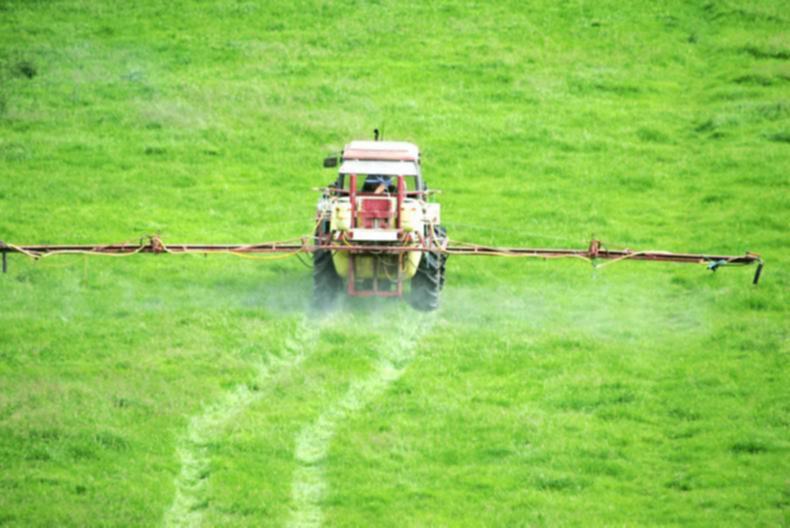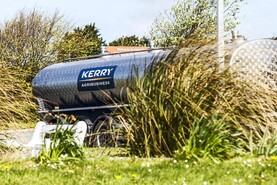With the November 2015 deadline now in coming into view just 601 farmers have so far registered with the Department of Agriculture as professional users of pesticide sprays. Teagasc estimate that as many as 40,000 farmers and others use sprays and these individuals will be obliged to register if they wish to legally continue doing so. This number includes specialist tillage and horticultural producers but also grassland farmers who spray occasionally with small tractor sprayers or even knapsack sprayers.
Registration is carried out on the Department of Agriculture’s website at www.pcs.agriculture.gov.ie. A requirement is that the applicant has completed training in safe use of sprays. Many farmers have already obtained this as part of their general farm training. Those who have not will have to pay for and sit a training course this year.
The online process asks the applicant to indicate what qualification he or she has. It provides a list of qualifications to chose from although other courses may also qualify.
Teagasc says that it has a listing of approximately 13,500 farmers who received training on one of its various courses. These vary from Green Certificate courses to specialised spraying courses offered to tillage farmer clients. According to Paddy Browne, Teagsac Head of Crops, Environment and Land Use, farmers can contact their local Teagasc offices to check if they are on this list. If they are, they can obtain a letter stating this from the Teagasc office, for the purposes of registration.
Other farmers will qualify having taken other courses here or in the UK including degree courses in universities. Paddy Browne said that it was likely that most tillage farmers have already undertaken the necessary training. However, it is likely a significant number of grassland farmers will need to take courses, he said.
Teagasc has been offering courses at two centres: Gurteen College and the Botanic Gardens. It may offer training elsewhere if staff resources are available. It charges €380 for its course. Training is available from a variety of other organisations at varying cost, including Farm Relief Services. One agri-merchant, J Grennan & Sons, offered a training course for its tillage clients at a cost of €180.
When registering online with the Department of Agriculture applicants are not asked to submit proof of training – but are warned they may be asked to produce it on inspection.
Some 1,000 individuals have already registered with the Department of Agriculture as Registered Pesticide Advisers. These include crop advisers working with Teagasc, other farm advisory groups and co-ops and grain merchants, etc.
Sprayer testing
Meanwhile, next year 2016 sees the introduction of sprayer testing. All sprayers with a boom longer than 3m must be certified by 26 November of next year. There is likely to be a cost for the test service.
It will be a farmer’s responsibility to ensure his sprayer is tested and to organise the test. The Department of Agriculture will maintain a list of approved testers. The sprayer test certificate will remain with the sprayer if the machine is sold or replaced.
The test will examine the following components: power transmission parts, pump, agitation, control systems, spray lines, filters, spray boom, nozzles and spray pattern.
€570 too high says Dunne
A small number of companies are attempting to charge inordinate fees for training, IFA grain committee chairman Liam Dunne said this week. “Farmers should shop around before booking a course as fees are ranging from €180 to €570. Indeed many farmers unknown to themselves may already have the necessary qualifications. Farmers should check out with their local Teagasc office to see if they are qualified.”
Using a qualified contractor for spraying may in future make more sense for many grassland farmers or small operators, he said.
He met with a number of course providers and requested them to offer the theory element of courses through distance learning so that farmers do not have to take unnecessary leave from their farms.






 This is a subscriber-only article
This is a subscriber-only article










SHARING OPTIONS: